

Search form

Research Proposal and Thesis Format
This is a written presentation of an intended research specifying the problem, the purpose, scope/objectives, methodology, references and the financial plan/budget. A synopsis is an outline of the research proposal of 3-5 pages length (including references) which is currently required for provisional admission to Ph.D and other doctoral degree studies at Makerere University.
Guidelines for Online Research Proposal and Thesis Defence
The higher education landscape is rapidly changing, the technological rise of the 21st-century and widespread integration of those technologies into our society, combined with access to the internet has integrally changed graduate research proposal and thesis examination/defence approaches. The rapidly changing landscapes call for a review of the research proposal/thesis examination methods in order to keep up with the times and incorporate integrated technologies into the learning modal, these technologies aren’t going to go away, they’ll continue to be integrated into our society and it’s time to embrace them for the advantages they bring. With the heavy integration of online technologies, the University will be able to improve the teaching and learning processes, information retention, engagement, responsibility and academic integrity.
Virtual and blended approaches have become important because they help to break down the traditional walls of examination, and now with access to present day technologies and resources we can tailor the examination experience to the prevailing conditions.
The Makerere University policy and regulations for the examination of research dissertations and theses provide for three forms of defense, namely, face-to-face; blended; and/or online technology. Traditionally, the Makerere University ’s thesis examination policy required that all participants be physically present in the room where the thesis defense is taking place, however, under exceptional circumstances, videoconferencing is permitted provided that the following conditions are met:
- The general University regulations governing graduate research proposal and thesis examination/defence will apply ( ref. Mak Graduate Hand book available at www.rgt.mak.ac.ug )
- A suitable space and technology for the videoconference should be designated before the proposal and thesis defense. The technology should ensure system stability and quality of sound and image during the examination.
- Contact the Directorate of Information and Communication Technical Services (DICTs) for audio and videoconference technical support for the duration of the defense.
- Inform the Director, Directorate of Research and Graduate Training in advance of an upcoming online research proposal or thesis examination. In this notification letter, the Principal/Dean/Chair should indicate in writing he/she has read and understands the regulations and rules for online examination/defence.
- Videoconference software must be used that allows all participants to see and hear each other during the entire examination/defense.
- Online participants must connect using hardware and network connections that ensure that all participants are visible and audible and that the connection is stable and available throughout the scheduled time of the defense.
- Examination by ordinary cellular telephone (Audio only) is not permitted under any circumstances.
- Conducting a practice run one week prior to the defense to ensure that participants are comfortable using the technology is highly recommended.
- Maintain a good balance between web-conference security (to avoid disruptions, i.e. ‘web-bombing’) and allowing for an open public participation in the defense.
General Considerations
- It is the responsibility of the Department to facilitate the web/teleconference-based defense;
- To ensure that the candidate knows how to use the software platform, the Chair and candidate should conduct a test meeting prior to the defense.
- Virtual research proposal and thesis defenses should adhere to the normal University requirements and procedures as much as possible;
- The candidate and the examiners are encouraged to use a headset to reduce audio feedback, and to use an ethernet connection to the internet instead of WiFi.
- The PhD Thesis defenses are open to the public audiences, and specific video connection instructions will be distributed to the University community in advance of the defense.
- At the discretion of the Chair of the examination committee, a defense in progress may be stopped and rescheduled, ideally within one week if technical difficulties prevent the student, Chair or examiners from participating.
Before the Examination/defense
- The Chair opens the meeting 15 minutes before the scheduled start of the defense. All participants should join the meeting at least 10 minutes before the defense begins.
- The Chair should ensure that late participant arrivals do not distract the candidate once they start their oral presentation. Alternatively, the Chair can lock the meeting after the oral presentation begins.
- At the start of the defense, the Chair will explain the format of the defense, including the time allowed for the oral presentation and set the ground rules for participation.
- It is advisable that the candidate should send their presentation materials to the Supervisor and Chairperson ahead of time in case technical difficulties prevent projecting them during the teleconference.
- To avoid distracting the candidate during their oral presentation, examiners and audience members’ microphones and camera should be turned off.
During the Examination/defense
- The Chair should reminds the candidate and examination committee of the regulations. The Chair could project the slides on behalf of the candidate.
- Audience members can either ask their question via the tool, in which case the Chair can turn on their video and microphone and invite them to interact directly with the candidate.
After the examination/defense
- At the end of the question period, the Chair will ask the audience to leave the meeting and invite the candidate to either leave the meeting or isolate them from the other participants in the “lobby” depending on the software platform used.
- Each examiner will individual assess and score the candidate’s performance. No vote will be recorded for an examiner who was not able to attend the defense. If an examiner must leave early due to technical difficulties, they can be allowed to vote via email at the Chair’s discretion.
- The Chair will ask the examiners to sign the Examination Report. More details on digital signatures shall be provided by the DRGT.
- The Chair will invite the candidate to return to the meeting and inform them of the outcome of the examination/defense.
- If the candidate passes but revision of the thesis is required, the Chair will provide written comments to the candidate. All examiners must agree on the required changes. Optional changes that the candidate should consider prior to submitting the final report to the DRGT.
- If the candidate fails, the Chair will provide written comments on the oral defense performance.
- At the committee’s discretion, the candidate may be given a second attempt to defend the proposal or thesis.
Guidelines and best practices for the Principal/Dean/Chair
In advance of the examination/defense, the Chair
- Consult with the student to select the video conference program to be used. At the time of the defense, the Chair should be the host/point person for any technology difficulties. Please do not leave this to the student, even if Chair is sure the student is more adept at technology.
- Be knowledgeable of the ICT facility especially on how to allow the student to share slides and control the presentation.
- Consider offering a “test run” with the student to ensure that the technology works and that they are comfortable using it to present their findings and answer questions.
- Ensure that the student maintain audio-video connection throughout the examination.
- Be responsible for ensuring that the requirements for online participation are met and that the online participation was uninterrupted or, if interrupted, that the defense was paused until the situation was fully restored.
At the defense
- All participants should be in the examination room at least 15 minutes before the scheduled start time.
- Don’t multitask during the research proposal or thesis defense. Many examiners often do this in the online environment, but this is not a regular online meeting, it is an examination. The student defending has spent years in anticipation of this examination/defense.
- Chair has the authority to discontinue the online defense at any time if they judge that online participation is interfering with the proper conduct of a rigorous and fair defense.
- If one or more participants is dropped from the connection, or if audio is lost, the defense must be paused until the connection is restored. If the connection cannot be restored, the Chair must suspend the defense until it can be rescheduled.
- Chair will introduce the candidate and the examination committee members; just as you would in a live defense (this is also a final check that all the audio/visuals work).
- Put a brief the agenda/rules in the chat window as a reminder of the examination rules.
- Audio-only participation by either the examination committee members and the student is not permitted.
Guidelines and best practices for the candidate/student defending
In advance of the defense
- The student should arrange to distribute all visual materials in advance of the defense
- Make sure you know how to use the chosen video conferencing site (WebEx, Zoom, Microsoft Teams).
- Share your slides with your Supervisor before the start of the defense. Ensuring someone else has them and could potentially share them if necessary is a good back up plan.
- If you have notes or a presentation, practice how you will setup and deliver that beforehand. You may want to arrange your screen so that you can see your committee
- To ensure high quality and full access to web-conference features, the candidate should participate in the defense using a laptop or desktop computer.
- Plan your physical space for the defense to ensure that there is enough light so that you can be seen without a shadow; avoid glare, shadows, or an overly cluttered backdrop, and Use headphones is encouraged, to reduce any potential background noise.
- When delivering the presentation, sit and be sure that your webcam has a good shot of you from the shoulders up. In a live defense, you would probably be standing, but that will not work here since you will not be as clearly visible.
- Even though you are, sitting and you are communicating via videoconference, your gestures and nonverbal communication still matter. Just as in a face-to-face examination, practice to avoid all those verbal fillers that may clog your communication.
Guidelines and best Practices for the examination committee members/Panelists
- Do a test run, and consult DICTs and time to arrange the camera and lighting in advance.
- Use your video to the extent that your internet connection allows, rather than a still image or your name.
- Please mute your microphone unless you are speaking.
- The examination committee members evaluate the candidate’s presentation, the quality of the research proposal or thesis as well as the candidate’s response questions.
Guidelines and best practices for the public audience :
- After the defence, examination committee members have completed their rounds of questioning, and if time permits, the audience will have an opportunity to submit questions in writing using the chat feature.
- Please keep the microphone muted at all times.
T r oubleshooting
- Ensure there is a back-up phone number for all required participants in case there is a problem with the technology. While University policy does not allow for participation via phone, being able to reach participants by phone can help troubleshoot a solution.
- If all else fails, notify the Director DICTS of the issue by other means (e.g., email, text).
Please follow these directions for planning and conducting an online/virtual proposal or thesis examination. These directions provide procedures and technical guidelines for running a virtual oral research proposal or thesis examination using videoconferencing technology. These directions do not replace the University regulations governing research proposal or thesis examination. Then Chair is responsible for understanding and conducting examination in accordance with the University regulations.
The following recommended directions explain how to set up a video-conference examination, and ensure that the defense runs smoothly and securely.
Process for planning and conducting a videoconference for Graduate Research proposal and Thesis examination/defence
Contact point in case you need further clarification of these regulations and procedures:
Commemorating World Environment Day
Mak-Vision Group to popularize research and innovations

You may like
Aptitude Test Results for the Mature Age Entry Scheme 2024/2025
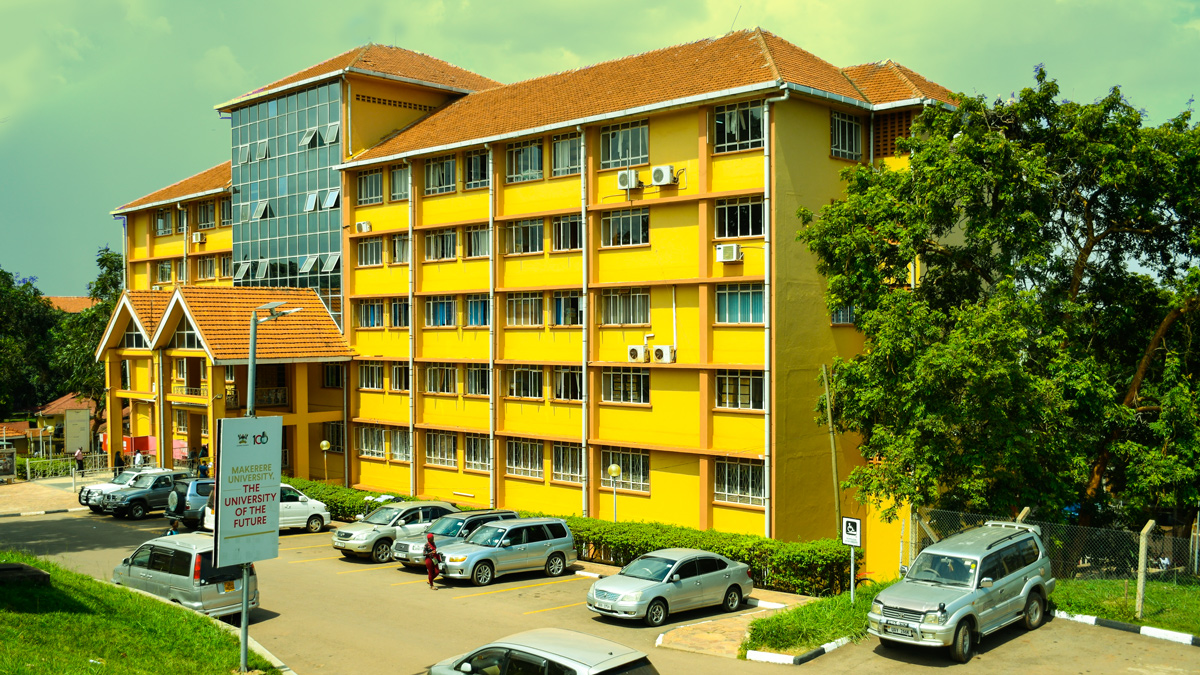
The Office of Academic Registrar, Makerere University has released Aptitude Test Examination results for the Mature Age Entry Scheme Examinations held on Saturday 24th February, 2024 .
The Candidates who scored 50% and above in the aptitude test passed the aptitude examination and will have their programme -specific examination paper marked. Those who scored less than 50% failed.
Access the links below for the lists categorised under Science-based and Humanities based programmes respectively:
- Mature Age Entry Aptitude Exam Results -SCIENCE
- Mature Age Entry Aptitude Exam Results -HUMANITIES
Below is the list for Full Results for Candidates who sat Mature Age Entry Examinations 2024/25 for Bachelor of Laws. Note: All candidates who scored a final mark of 50% and above should prepare for the Bachelor of laws pre-entry examination:
- Mature Age Entry Examinations Results 2024/25 for Bachelor of Laws
Strengthening Partnerships: Makerere University Welcomes Delegation from Western University, Ontario, Canada
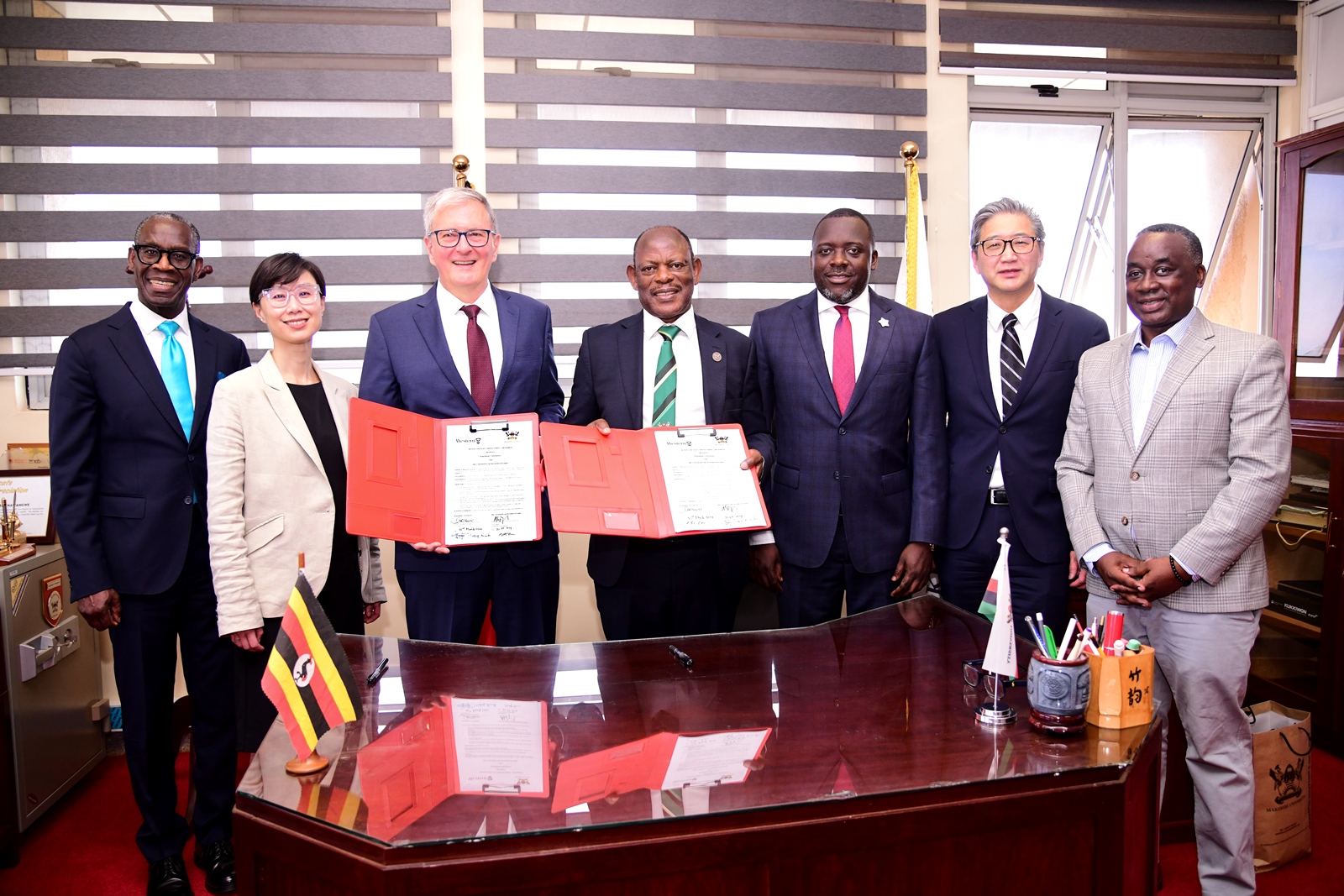
By Carol Kainomugisha
The Vice Chancellor, Prof. Barnabas Nawangwe and the University Management, welcomed a delegation from Western University, Ontario, Canada (UWO) , marking an important milestone in the strengthening of international partnerships and collaborations. The week-long visit, characterized by insightful discussions and exchanges with various colleges, departments and units of the University, highlighted various areas of mutual interest and potential collaboration between the two esteemed institutions.
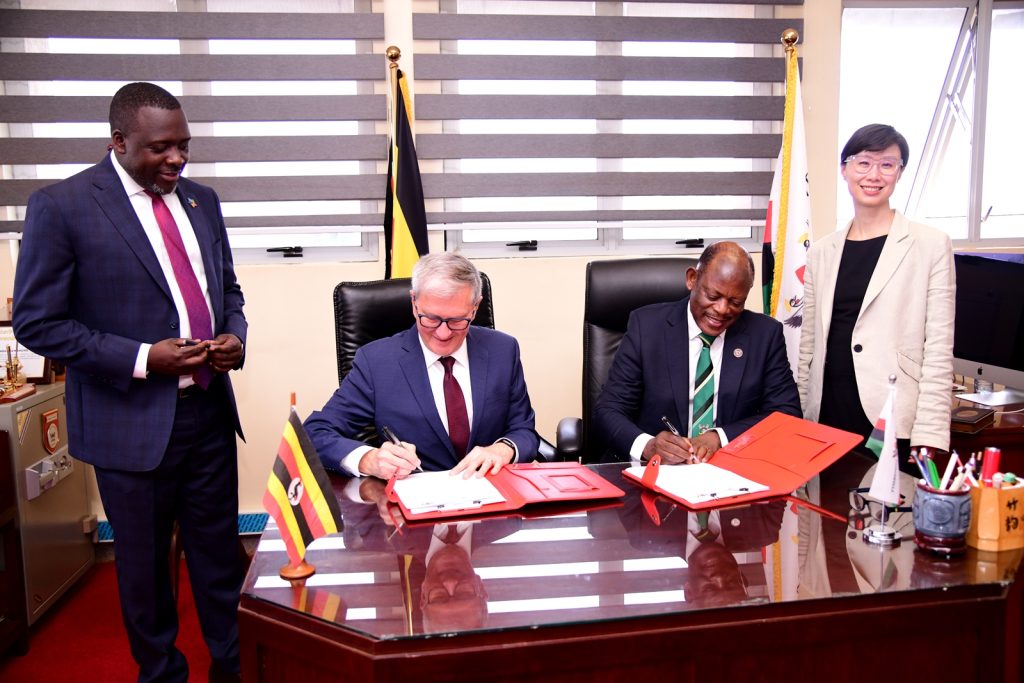
The delegation was led by President and Vice-Chancellor Dr. Alan Shepard and accompanied by Vice-Provost and Associate Vice-President, Dr. Lily Cho, the Associate Vice-President, Equity, Diversity, and Inclusion, Dr. Opiyo Oloya and the Dean, Schulich School of Medicine and Dentistry, Dr. John Yoo.
The visit culminated with the signing of a new Memorandum of Understanding (MoU) which will most certainly strengthen the already existing relationship between Makerere University and Western University.
The meeting between Makerere University and Western University commenced with the University Management which discussed collaborative opportunities, particularly in engineering, design, and technology, emphasizing interdisciplinary collaboration and knowledge exchange.
Mr. Opio Oloya addressed issues of Inclusivity and diversity in academia, focusing on integrating indigenous knowledge, combating global anti-blackness, and promoting social integration within university communities.
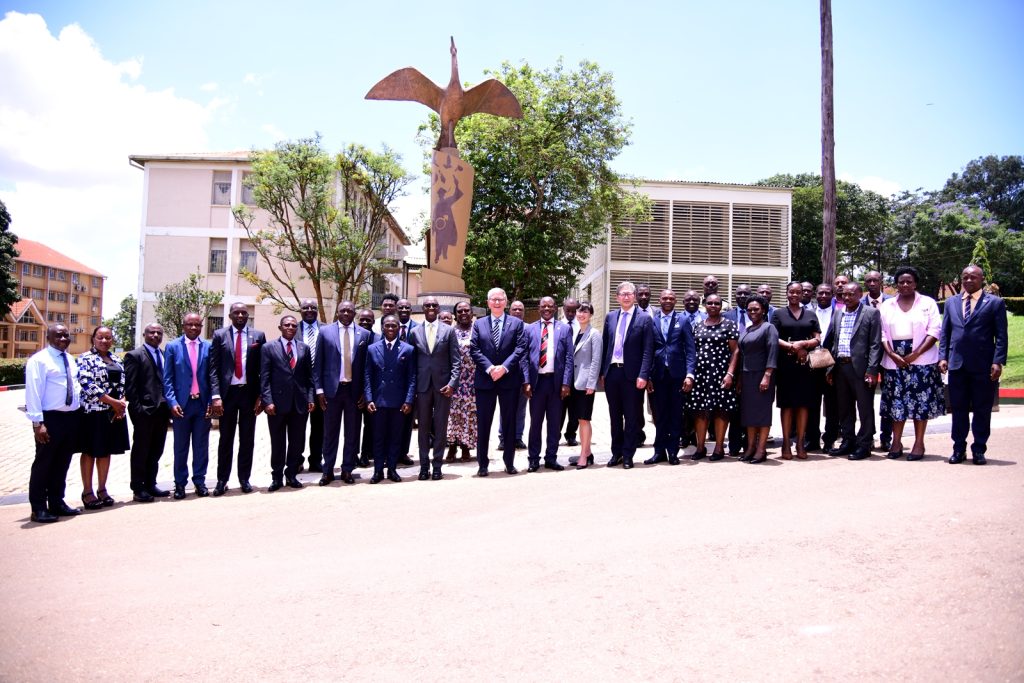
Makerere ‘s academic excellence and capacity-building initiatives were showcased, with plans to expand graduate training opportunities and enhance capacity through student and faculty exchanges.
The meeting concluded with a shared vision for future collaborations, including research projects, academic programs, and student exchanges, reaffirming the commitment to fostering excellence and addressing global challenges through collaborative efforts.
Fostering Global Academic Partnerships: Western University meets Makerere University Colleges and Units.
In a meeting at the School of Law, led by the Principal, Associate Prof. Ronald Naluwairo, the delegation held lengthy deliberations to explore avenues for academic collaboration, embodying the power of international partnerships in academia.
Central to the dialogue was Western University’s interest in global engagement, particularly in internationalization, aligning with Makerere ‘s ethos of interdisciplinary collaboration. The meeting highlighted joint research opportunities, staff, and student mobility programs, showcasing a commitment to academic excellence and the potential for cross-cultural learning and growth.
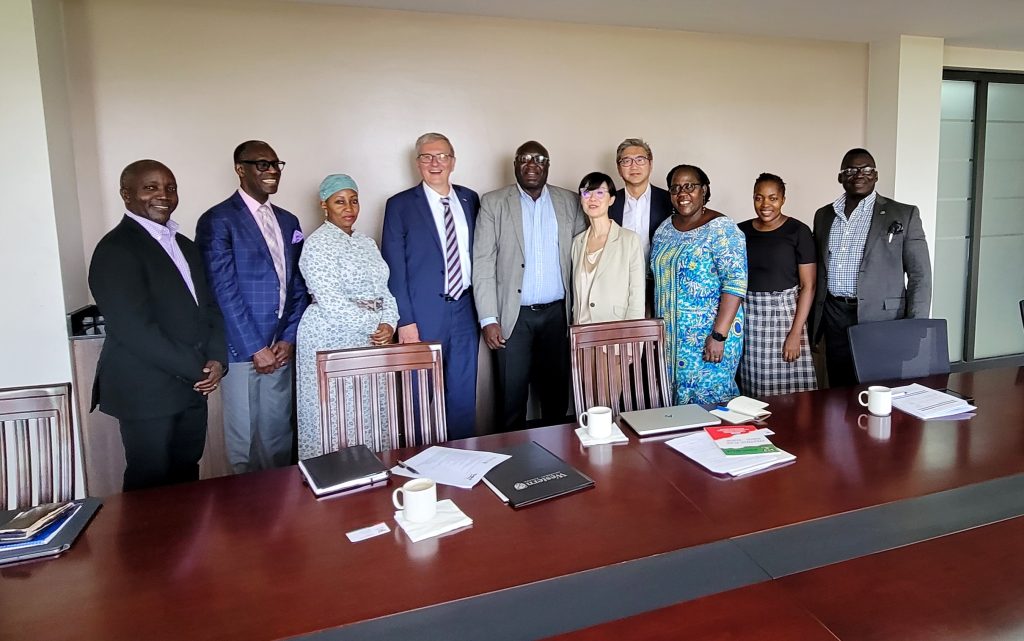
During the meeting between the Infectious Diseases Institute (IDI) and Western University, the Executive Director Dr. Andrew Kambugu outlined IDI’s evolution from an academic venture to a multifaceted institution driving service delivery, research, and capacity building in Africa.
Highlighting existing partnerships, particularly in data management with the Faculty of Medicine at Western University, President Alan Shepard underscored the tangible outcomes of cross-border collaboration, with data-driven research initiatives making significant contributions to healthcare and public health interventions. Future collaboration prospects, including exchange programs, joint initiatives, and equipment donations, emphasized a shared commitment to innovative approaches and collaborative problem-solving to address pressing challenges in Africa.
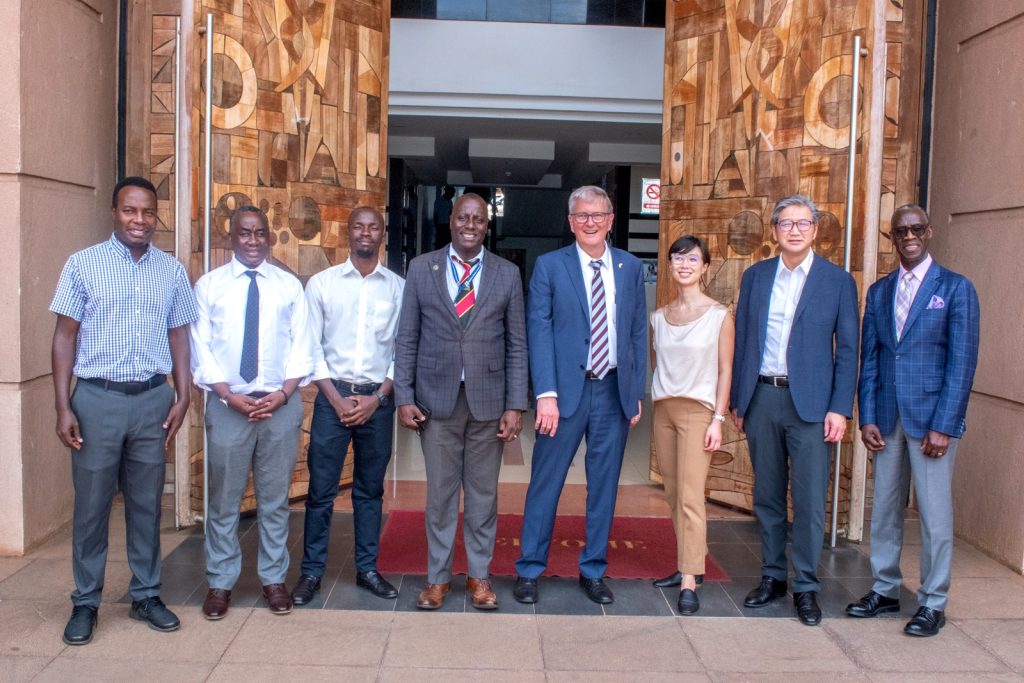
Celebrating Collaboration: Farewell Luncheon Honoring Western University Delegation
A farewell luncheon, hosted by Mrs. Lorna Magara, the Chairperson, Makerere University Council, marked the poignant conclusion of the exchange visit with Western University, Ontario, Canada, celebrating the enduring spirit of collaboration and friendship between the two institutions.
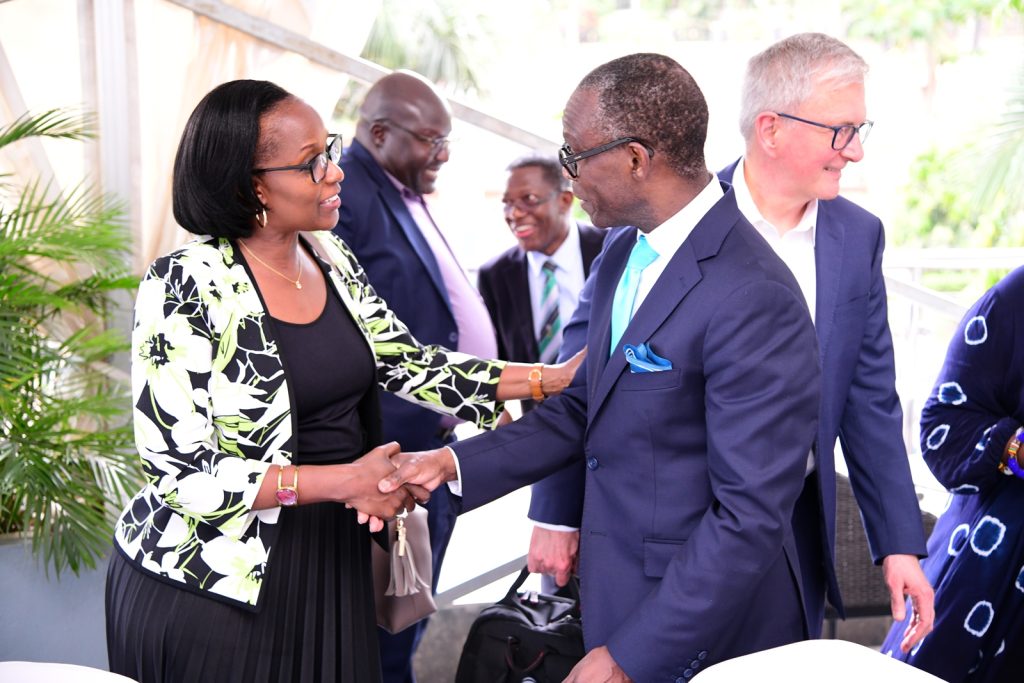
As farewells were exchanged, participants left with cherished memories and a renewed commitment to nurturing the partnership for future endeavors, underscoring the power of collaboration to transcend boundaries and create opportunities for growth and learning.
As Western University and Makerere University look ahead, the memories of the week-long strategic visit will serve as a beacon of inspiration, guiding their continued efforts to collaborate, learn, and grow together.
CTCA Request For Expression of Interest: Finance and Accounts Assistant
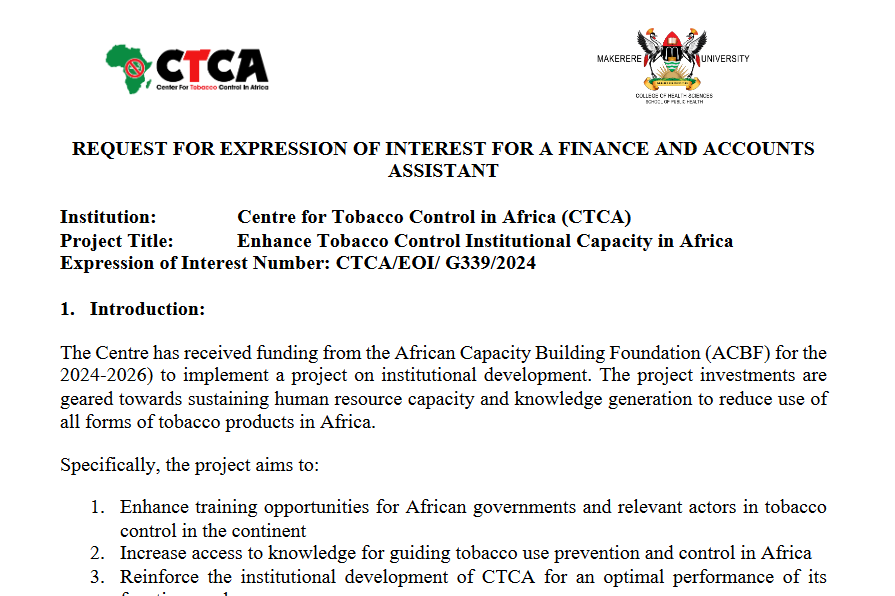
Institution: Centre for Tobacco Control in Africa (CTCA) Project Title: Enhance Tobacco Control Institutional Capacity in Africa Expression of Interest Number: CTCA/EOI/G339/2024
1. Introduction:
The Centre has received funding from the African Capacity Building Foundation (ACBF) for the 2024-2026) to implement a project on institutional development. The project investments are geared towards sustaining human resource capacity and knowledge generation to reduce use of all forms of tobacco products in Africa.
Specifically, the project aims to:
- Enhance training opportunities for African governments and relevant actors in tobacco control in the continent.
- Increase access to knowledge for guiding tobacco use prevention and control in Africa.
- Reinforce the institutional development of CTCA for an optimal performance of its functions and processes.
Therefore, CTCA is seeking the services of a Finance and Accounts Assistant whose overall responsibility will be to provide finance and administrative support to ensure efficient operation of the office. The Assistant will support management and other employees on a variety of tasks related to administration, finance, procurement, and communication.
2. Scope of Work
The specific duties include:
- Providing support to the accounting and procurement functions through preparing journals and loading payments for review by the budget and finance officer for authorization
- Maintain supplies inventory by checking stock to determine inventory level; anticipating needed supplies; placing and expediting orders for supplies; verifying receipt of supplies.
- Administer and manage logistics and contracts for services with service providers such as travel agents, hotels, translations and interpretation agencies, office supplies
- Maintaining a clean electronic and manual filing system.
- Handling communications – Receiving, storing, retrieving, dispatching, organizing documents and other correspondence of the Centre.
- Provide secretarial services to CTCA technical meetings.
- Assist in the preparation of regularly scheduled reports.
- Assist in logistics preparations for meetings, workshops, and missions.
- Oversee and supervise the work of junior staff.
- Maintain up-to-date employee records.
- Any other duties as may be assigned.
See Downloads for detailed advert.
Application deadline: Not later than 17:00 hours on 8 th April, 2024.
View on CTCA
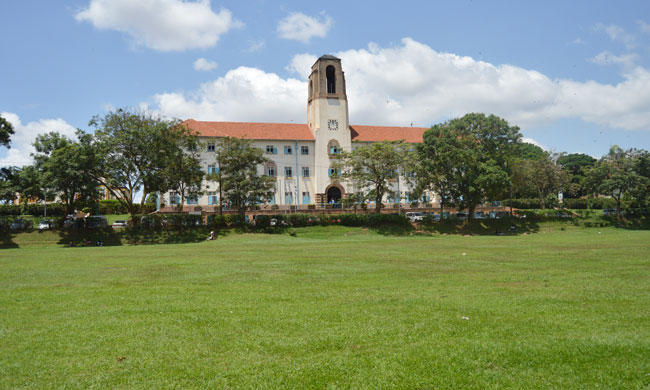
Pre-Entry Examinations for Admission to Bachelor of Laws 2024/25 Academic Year
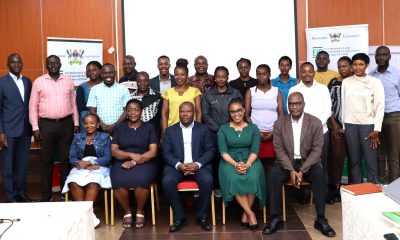
The Academia & Government Officials Identify Research & Data gaps in the Management of Natural Resources in Uganda
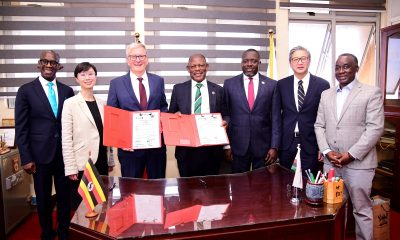
- List of all Programmes
- Fees Structure
- Church Relations

- International Applicants
- Fees Payment
- Important Documents
- Directorate of Research
- Google Scholar
- Values & Identity
- Administration
- Partnerships
- Explore UCU
- University ICT Services
- Financial Aid
- Healthy Services
- Hospitality Services
- Bishop Barham University College Kabale
- Mbale Regional College
- UCU Arua campus
- UCU Kampala Campus
- Faculties & Schools
- Undergraduate Programmes
- Approved Research Manual
- Notice of intent to submit Thesis or Dissertation
- Notice of Submission of Thesis or Dissertation
- Regular reporting sheet
- Regular Supervision report
- Viva Policy
- Short Courses
- Athletics and Sport
- Student’s Guild
- Emergency Numbers
- Maps and Events
Scientific Research Proposal and Report Writing
Course description.
This module will prepare students to develop the skills necessary to undertake a research project relevant to their own clinical and educational environment. This module provides students with the opportunity to critically analyze different research methodologies relevant to their areas of practice. They will also appraise the academic literature to develop an evidence-based approach to increase professional effectiveness in the medical and health education fields.
Target group
The course will benefit a diverse range of learners including Masters and Ph.D. students as well as early-career researchers and more senior colleagues with some experience.
Learning outcomes
Participants will develop knowledge, skills, and understanding that will enable them to:
- Demonstrate a critical understanding of the principles and methodologies of managing a research project applied in the context of the student’s own educational and clinical practice
- Review and critically evaluate best available evidence relevant to a specified area of professional practice, synthesizing information from key sources and literature searches, assessing the literature for validity and relevance using a recognized appraisal tool.
- Critically evaluate and appraise quantitative and qualitative research strategies, and consider the application of each to addressing different research questions in the professional and clinical environment.
- Demonstrate an ability to reflect on the ethical aspects of research, and to compile a formal application, comprising a research project proposal and ethics approval form, for later consideration
Course content
- Structure of a research proposal
- Social science perspectives on methodology – including phenomenological approaches; the ontology and epistemology of research approaches and ‘insider research’ / ‘real-world research’ / practitioner research’ in particular.
- Development of the research problem/statement
- Development of the research question(s) and/or hypotheses
- Exploration of issues in research design (including possible stakeholder involvement), including research methodologies – phenomenology; ethnography; case-study; quasi-experimental research
- Critical analysis and identification of the best available literature and research evidence to support the research problem and questions.
- Development of a parallel ethical proposal in anticipation of the future process of relevant Ethics Committee submission.
- Structure of a Scientific report
Training methods
This course will be available on face-to-face and Online. It will encompass specific facilitator inputs (e.g. lecture presentations), combined with a variety of interactive learning activities, including structured group work, demonstrations, group and individual reflection, role plays, self-study and writing, and plenary discussions
Mode of assessment
The course will be assessed using pre and post-tests, continuous progressive tests, presentations, and group discussions
Upon successful completion of this course, participants will be issued with a certificate from Uganda Christian University.
Training venue
The training will be conducted at UCU School of Medicine campus Mengo or any other venue communicated in advance.
To register for the course, Please Register or visit our administrative office at UCU School of Medicine Mengo near Namirembe Cathedral. Application forms cost a non-refundable fee of UGX 30,000
Application
A training fee of UGX 450,000 will be charged for the course. This covers tuition fees, learning materials, and training venue. Payment should be sent to our bank account before the start of training and proof of payment sent to [email protected] NOTE: Foreign currencies will be converted using prevailing forex rates.
Visit https://ucu.ac.ug/payments for a variety of payment options. The Administrator shall avail an Access Code to Distance Learners upon presentation of proof of payment.
Training Schedule
Course intakes.

How to Apply
You can download an application form here (You will have to pay for it on submission) OR obtained one at a non refundable application fee at any of our Campuses Country-wide. Read More

Our Academic Programmes
Uganda Christian University offers a number of Undergraduate and Postgraduate programmes which are designed to develop a cadre of professionals with integrity. Read More

Call for Applications
Uganda Christian University is receiving applications from Prospective Students. View available courses and Apply now

Knowledge and Skills for Service
- Scholarships
- Schools & Faculties
- Affiliated Institutions
- Partnerships and Collaborations
- Institutional Repository
- Directorate Of Research & Graduate Training
- Research & Publications
- Admission Lists
- Students Portal (ACMIS)
- Admissions Portal
Kyambogo on Twitter
The 9th call for proposals for competitive research grant scheme.
By Kyambogo University / In Communications & Calls , Research , University News / January 24, 2024
Application Submission Deadline: 1st March 2024
Date released: 23rd january 2024, a: introduction.
The Ad hoc Committee of Kyambogo University Competitive Research Grants Scheme (CRGS) invites applications for Research Proposals. The goal of the CRGS is to strengthen the research capacity of the University Teaching Staff. The objectives of the scheme are to:
- Increase the volume and quality of research at Kyambogo University;
- Enhance the capacity of academic staff to supervise graduate students;
- Enhance the capacity for successful proposal grant
The Competitive Research Grants Ad hoc Committee calls for research proposals that are in line with the following:
- The Kyambogo University Research Agenda;
- The National Development Plan III;
- The United Nations Sustainable Development
B: Research Category
Category one: one-year research projects.
The research grant is a one-time award, with financial support of up to twenty-five million Uganda Shillings (25,000,000/=) for Arts, Humanities and Social Sciences and up to forty million Uganda Shillings (40,000,000/=) for Science-based proposals. The funding will allow an extra provision of up to five million Uganda Shillings (5,000,000/=) to purchase small equipment upon justification. (The purchased equipment shall remain the property of the University).
Category two: Six months of research projects
The short-term research (not exceeding six months) will be funded to a maximum of fifteen million Uganda shillings (15,000,000/=). The choice of a project and why it is short-term has to be justified.
C: Eligibility
- Applicants shall be full-time Academic staff members of Kyambogo
- The Principal Investigator (PI) shall be a PhD Female academic staff are encouraged to apply. The PI shall demonstrate how she/he will build capacity and mentor the team members.
- A PI on one project can be a Co-PI on not more than two running
- Successful applicants of the previous Competitive Research Grants Calls (1st to 8th Call) can only apply as Principal Investigator (PI) after providing proof that their earlier research projects were completed and published or submitted to credible publishers
- The PI is encouraged to identify a graduate student to work with on the project.
D: Notification
The Calls for Competitive Research Grants will be uploaded on the Kyambogo University website and will also be disseminated by email.
E: Administration of the grants scheme
- At the end of the selection process, the Competitive Research Grants Ad hoc Committee will announce the successful applicants, who will be required to sign a Bonding Agreement with Kyambogo University.
- The University Accounting Officer will then issue out funds to the successful applicants according to the University’s Financial Regulations.
- Bi-annual progress reports shall be submitted by the recipients to the Secretariat of the Scheme.
- A final report shall be submitted as per the approved project time frame.
On completion, a recipient is required to:
- Disseminate the research findings during a scheduled conference(s) to be held at KyU;
- Publish at least one article in a reputable/credible peer reviewed journal;
- Submit the article for archiving in KyU Institutional Repository;
- Provide evidence that the student who was on the project has completed in case of Masters Students(Award letter) or on course to graduate for PhD students (Evidence of article published)
- Submit end of project report.
G: Submission guidelines (Must use the provided template in Microsoft Word )
The research proposal shall be written in Microsoft Word, Times New Roman, Font 12, single spacing and normal margins. Proposals should not exceed twelve pages. The proposal shall be submitted to the secretariat in the Office of the Vice Chancellor by the PI in both print and electronic formats to [email protected]. The proposal should consist of the following sections:
- Title Page. Include a precise research study title of not more than 20 words, name(s), Department, Faculty/School of the applicant(s) and names of the investigator.
- Project summary (Maximum of 300 words).
- Introduction (Maximum one page).
- Problem statement (Maximum half a page).
- Objectives/Major research questions (Maximum half a page).
- Research questions/hypotheses where applicable (Maximum half a page).
- Justification (Maximum half a page).
- Methodology (Maximum two pages). Attach separate quantitative and/or qualitative data collection tools.
- Implementation plan (Maximum one page).
- Contribution to cross-cutting issues for example gender, disability, marginalized groups and climate change (Maximum half a page).
- (Use APA 7th edition, maximum one page).
- Budget and budget justification (Use CRGS Excel template only).
The grant allows:
- A maximum of US$ 700 for the cost of Journal article publication.
- A maximum of US$ 300 for REC fees.
- A maximum of US$ 300 for UNCST fees.
- A maximum of UGX 1,000,000/= (One million Uganda Shillings) for the Dissemination Conference.
- Tuition fees for the graduate student for one year.
The grant does not support the following:
Salaries or honoraria for research team members and technicians, international travel to conferences/seminars/workshops, newspaper articles/adverts, banners, , students’ stipend, vehicles, computers, printers, smartphones, furniture, bank charges, contingency/ miscellaneous/ unforeseen and the like.
13. Applicant’s Curriculum Vitae (Maximum one page for PI and one page for each Co-PI).
H: Selection Process
All proposals will be subjected to:
- Administrative review.
- External review.
- Selection by the committee.
I: Feedback
All applicants will be notified of the status of their application at the end of each selection process stage.
Download the Call’s Documents Below
Leave a Comment Cancel
Your email address will not be published. Required fields are marked *
Save my name, email, and website in this browser for the next time I comment.
Copyright © 2024 The Official Kyambogo University Website
WordPress Theme by WPZOOM
- https://139.180.128.62
- slot gacor 777
- http://45.32.105.235/rtp-live/
- https://159.223.49.61/
Theses and Dissertations (Masters & PhD)
- By Issue Date
Search within this community and its collections:
Collections in this community
- Business and Management Research Papers from the School of Business and Management
- Commercial Industrial Art & Design Research Papers from the School of Commercial Industrial Art & Design
- Computing and Informatics Research Papers from the School of Computing and Informatics
- Education Research Papers from the School of Education
- Law Research Papers from the School of Law
- Sciences Research Papers from the School of Sciences
- Social Sciences Research Papers from the School of Social Sciences
Recent Submissions
- Teaching literacy using the local language and learner achievement at lower primary in Uganda’s schools, a case of selected schools in Bukwo district Kusuro, Isaac ( Nkumba University , 2023-10-10 ) The study examined the effectiveness of teaching literacy using the local language in lower primary: a case study of Bukwo District. The study was guided by the following objectives; to examine the effectiveness of ...
- Performance appraisal and tutor output in primary teachers’ colleges of eastern Uganda Athieno, Gertrude ( Nkumba University , 2023-09-28 ) This study “Performance Appraisal and Tutor Output in Primary Teachers’ Colleges of Eastern Uganda” was guided by three research objectives: To establish the parameters of tutors’ performance appraisal in PTCs of ...
- Factors associated with the occurrence of human bacterial pathogens in Lake Victoria surface water and Nile tilapia (Oreochromis Niloticus) at Kasenyi trading and landing site in Uganda Lujjimbirwa, Fortunate ( Nkumba University , 2023-10-04 ) Background: Lake Victoria is the world’s second largest and the largest by surface area in Africa and Uganda. It had over five hundred fish species before the 1960’s but a decline has been experienced over the years to ...
- Employee welfare and organizational performance of financial institutions in Uganda, a case study of Eco bank Uganda, Kampala Ngwa, Wilson Ambe ( Nkumba University , 2021-01-28 ) The study examined the contribution of employee welfare and organizational performance of Ugandan financial institutions. A case study of EcoBank Uganda, Kampala and this is because it is well known of its exceptional ...
- Work environment and employee performance in private sector, a case study of Mukwano group of companies Rukundo, Sephas ( Nkumba University , 2023-10-20 ) The focus of the study was to establish effects of Work Environment on employee performance in private sector using Mukwano group of Companies as a case study. The study was guided by the following objectives; to find out ...
- Computerized accounting systems and performance of logistics companies in South Sudan - a case of pg3 logistics, Juba Zakayo, Manase Kimbo Lemi ( Nkumba University , 2023-09-19 ) The study examined the role of computerized accounting systems on performance of logistics companies in South Sudan, a case study of PG3 Logistics in Juba. The study focused on three specific objectives: To examine how ...
- Working environment and employee performance in local governments of Uganda, a case of Luwero Municipal Council Nantume, Kasasa Susan ( Nkumba University , 2023-10-12 ) The study was about the working environment and employee performance in Local Governments of Uganda, a Case of Luwero Municipal Council. The study was based on three objectives: (i) to examine the effects of social work ...
- Financial management and organisational performance of SACCOS in Uganda; a case study of Kamba Village Cereals & Traders Savings & Credit Cooperative Society in Kongasis County in Bukwo district Mande, Everlyn ( Nkumba University , 2023-10-10 ) To examine the effect of liquidity management on the performance of Saccos in Kongasis County in Bukwo District. To establish the effect of cash management on the performance of Saccos in Kongasis County in Bukwo District. ...
- Effectiveness of School Based Health Clinics on Utilization of Sexual and Reproductive Health Services Among School Girls Aged 15-19 Years in Uganda: Cluster Randomized Trial Gloria Kasozi Kirungi, Frank Pio Kiyingi, Miph Musoke and Julius Kasozi ( JOURNAL OF CLINICAL AND MEDICAL CASE REPORTS , 2020-05 ) Background: Sexual and reproductive needs among adolescents remain largely unmet in Uganda, this coupled with poor access and utilization of adolescent sexual and reproductive health services among secondary school girls ...
- Effectiveness of School Based Reproductive Health Services on Prevention of Adolescent Pregnancy among School Girls Aged 15-19 years in Uganda: Cluster Randomized Trial Gloria Kasozi Kirungi, Frank Pio Kiyingi, Miph Musoke, Julius Kasozi ( 2020-06 ) The prevalence of adolescent pregnancy has remained high (25%) in Uganda for the last 10 years despite the implementation of numerous prevention programs. The limited access and availability of comprehensive reproductive ...
- Compliance to Recommended Humanitarian Sphere Standards of Sanitation by the Facilities in Bidibidi Refugee Settlement Located in Yumbe District, Uganda Alex, Barakagira ; Zaitun, Bako ; Ameria, Nabukonde ( 2022 ) Apposite sanitation is very essential for the community health, for it lowers the rate of morbidity and severity of diseases like diarrhea, dysentery and typhoid among others. In Uganda's Bidibidi refugee camp, research ...
- Participation of stakeholders in the design, implementation and evaluation of secondary school reform programmes in Uganda Herbert, Ssekandi ( 2007 )
- Factors affecting vocational education in Uganda : A case study of Wakiso district Sekandi, Herbert ( Nkumba University , 2006-02 )
- Financial management practices and financial performance of commercial banks in Uganda: a case study of Centenary Bank, Mapeera Branch Nabikindu, Oliver ( Nkumba University , 2022-01 ) The study examined the contribution of financial management practices on financial performance of commercial banks in Uganda basing on a case study of Centenary Bank, Mapeera Branch. It was guided by three objectives i) ...
- Internal auditing and financial performance of savings and credit cooperatives (SACCOS) in uganda: A case study of Wazalendo Sacco – Entebbe Branch Unknown author ( Nkumba University , 2022-02 ) The study is about internal auditing and financial performance in SACCOs in Uganda, using a case study of Wazalendo SACCO –Entebbe Branch. The study focused on three (3) specific objectives: To establish whether internal ...
- Organizational structures and service delivery in local governments in Uganda: A case study of Entebbe Municipal Council Tabu, Augustine ( Nkumba University , 2022-02 ) The study was about the organizational structures and service delivery in Local Governments in Uganda focusing on Entebbe Municipal Council. This was guided by objectives namely, to identify the administration and management ...
- Organizational structures and service delivery in local governments in Uganda: A case study of Entebbe Municipal Council Tabu, Augustine ( Nkumba University , 2022-02 ) The study is important because in Uganda, local government plays an important role in ensuring that the public services are accessible to all the people in their areas of jurisdiction.
- Logistics management and performance of government agricultural development programmes in Uganda: A case study of Kalangala Oil Palm Growers Trust Kyogula, Roy ( Nkumba University , 2022-01 ) Every company aims at gaining part in the growing global market and taking advantage of the advancement in technology which calls for the need for logistics management in operations to increase immensely as it has been ...
- Training and employee performance in private hospitals in Uganda: A case of Kisubi Hospital Kitone, Emmanuel ( Nkumba University , 2022-02 ) The study aimed at establishing the contribution of training to employee’s performance of Private Hospitals using its Kisubi Hospital ant it based on the following objectives; To establish the contribution of on the job ...
- Urbanization and solid waste management in Kampala Metropolitan Area: A case study of Bwaise-11 Parish, Kawempe Division Kibanda, Noah ( Nkumba University , 2022-01 ) The study examinedthe relationship between Urbanization and Solid Waste Management in Bwaise II. It was guided by three objectives, to examine how urbanization influences solid waste accumulation in Bwaise II, to assess ...
Search DSpace
All of dspace.
- Communities & Collections
This Community
- Matthias, Senfuka (2)
- Tabu, Augustine (2)
- Abaas E., Lutaaya (1)
- Abas I., Abdulle (1)
- Abdirazak Farah, Yusuf (1)
- Abdu L. Matovu (1)
- Abdul L., Sekabira (1)
- Abdullahi, Mustapha S. (1)
- Abel A., Sama (1)
- Addisalem, Tsegaye (1)
- ... View More
- Uganda (13)
- Financial performance (8)
- Motivation (8)
- South Sudan (7)
- Employee performance (6)
- Performance (6)
- Management (5)
- Security (5)
- Local governments (4)
- National security (4)
Date Issued
- 2020 - 2023 (85)
- 2010 - 2019 (139)
- 2006 - 2009 (2)
Has File(s)

- Undergraduate
- Study abroad
- Benefits of GRE
- Test Centre
- Why study MBA
- Alumni for MBA
- Concept notes
Research proposal
- Dissertation
Your 2023 Guide: How to Write an MBA Resume That Stands Out
Guide to 2024 deferred mba applications: deadlines, essays, and more, one young world summit 2024 summit building tomorrow scholarship (fully funded to montréal, canada).

PASS RESEARCH
When you have to write a thesis or dissertation , it can be hard to know where to begin, but there are some clear steps you can follow.
The research process often begins with a very broad idea for a topic you’d like to know more about. You do some preliminary research to identify a problem . After refining your research questions , you can lay out the foundations of your research design , leading to a proposal that outlines your ideas and plans.
Passing a research course or project requires a lot of planning, preparation, and hard work. At YOUPASS Uganda, we can assist you in the following:
- Choose a topic that interests you and is relevant to your field of study. Do some preliminary research to find a gap or problem that you can address with your research question.
- Review the literature on your topic and identify the main sources, arguments, and methods used by other researchers. Use a citation manager to organize and cite your sources.
- Formulate a clear and specific research question that guides your investigation. We develop a hypothesis or a tentative answer to your question based on existing knowledge.
- Design your research method and plan how you will collect, analyze, and present your data. Depending on your discipline and topic, we use quantitative, qualitative, or mixed methods.
- Write a research proposal that outlines your research question, objectives, literature review, method, and expected results. We follow the format and guidelines of your course or institution.
- Conduct your research and collect your data according to your plan. We are ethical and honest in your research practices. We Document your process and results carefully and accurately.
- Analyze your data and interpret your findings. Use appropriate tools and techniques to process and visualize your data. We answer your research question and test your hypothesis.
- We write your research paper or report that presents your research question, literature review, method, results, discussion, and conclusion. We follow the style and format of your course or institution.
- Proofread and edit your paper or report for clarity, coherence, and correctness. We check your grammar, spelling, punctuation, and references. Use a plagiarism checker to ensure originality.
- We submit your paper or report on time and according to the requirements of your course or institution. We train and prepare you to present and defend your research to your instructor or peers.
Please feel free to reach out to our advisor, Kaggwa Andrew (PhD), at 0702081492 or 0784508135 for further discussions and valuable insights. Additionally, he leads a team of experts specializing in research writing, supporting incoursework, exam preparation and handling various assignments.
Type above and press Enter to search. Press Esc to cancel.
Academia.edu no longer supports Internet Explorer.
To browse Academia.edu and the wider internet faster and more securely, please take a few seconds to upgrade your browser .
Enter the email address you signed up with and we'll email you a reset link.
- We're Hiring!
- Help Center
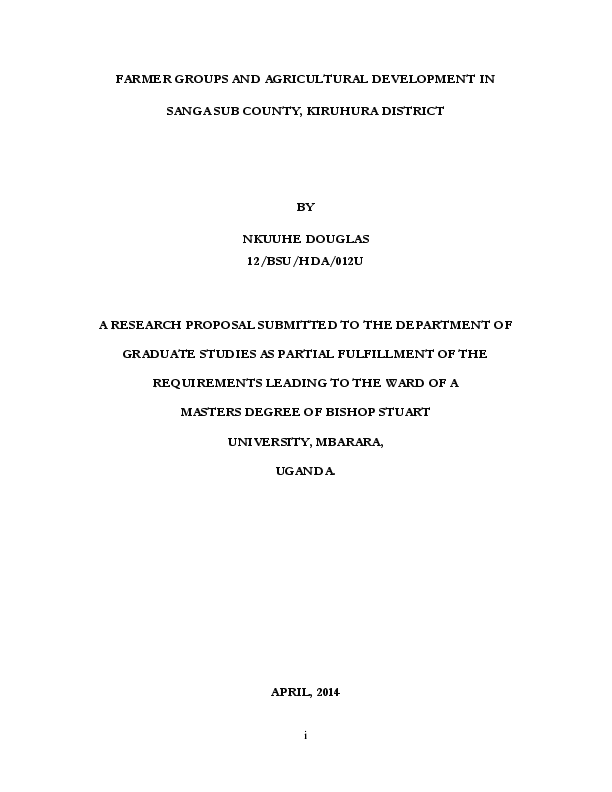
research proposal on farmer groups and agricultural development in Sanga Sub county, Kiruhura District in Uganda

The study will be carried out in Sanga Sub County in Kiruhura district. It will aim at investigating the roles of farmer groups in agricultural development in the Sub County. The study will specifically identify the farmer groups in Sanga Sub County in Nyabushozi county, Kiruhura district, establish the farmer group contribution/roles in agricultural development in the area of study, analyse the challenges met by farmer groups in a bid to bring about Agricultural development in Sanga Sub county, Kiruhura district and will explore ways of overcoming challenges faced by farmer groups in Sanga sub county. The study will use a descriptive research design. Data will be analyzed using frequency counts and percentages which will be derived from questionnaires and interviews. The study will use a sample size of 120 respondents. FINDINGS OF THE STUDY WILL BE PUBLISHED IN OCTOBER, 2014.
Related Papers
Nkuuhe Douglas
Although in Uganda, the group approach has been found to be essential for farmers' accessibility to extension services among others, the perception of farmers on its performance is rarely sought. This study aimed to conduct an evaluation of the group approach to agricultural development from the point of view of the farming community in Sanga sub-county, Kiruhura District. The objectives of the study were to establish the perceptions of the farmers on the role of farmer groups, their perceptions of the challenges and possible solutions that would make group participation an avenue for individual and community development. A survey using a random sample of 117 farmers was conducted in June 2014. Employing a descriptive study design, responses on their opinions were weighted using a Likert Scale. Key informants consisting of district officials, staff of non-governmental organizations and selected farmer groups were also interviewed. The results show that group membership was positively and significantly associated, at the 5% level, to the level of education. Although the sex of the respondent was not significantly associated with group membership, non-group respondents felt there was gender-based discrimination in access to group services and benefits. While the respondents acknowledged the importance of farmer groups as avenues for the provision of agricultural inputs and extension services, inaccessibility to land and production funds propelled poor participation in farmer groups. Efforts to improve this access especially to young farmers, improve infrastructural development would enhance the contribution of the farmer group approach to sustainable agricultural development.
John Musemakweri
Agricultural knowledge and information play a major role in agricultural development, particularly in food production in Uganda. One of the influential extension approaches used for the past decades has been extension-centered approach which focused more on improving efficiency in agricultural production rather than the educational process. The new National Agricultural Advisory Services (NAADS) extension program has emphasized a farmer-centered approach. The purpose of the study was to explore the farmers\u27 experiences and perceptions of the NAADS agricultural extension systems/program in Kabale district, Uganda. The study addressed two main research questions: (1) What are the perceptions of farmers regarding the NAADS information delivery approach; and (2) What is the level of farmers\u27 comprehension and the extent to which they have applied the skills and new technologies learned from education extension programs.;Qualitative design through interviews from selected farmers w...
Mwesigwa David
Farmer groups are a widespread feature in Sub-Saharan African countries, and have become particularly important in Hoima district, mid-western Uganda. Recent surveys have revealed the importance of SmallHolder Farmer Groups in Uganda as a method for generating food, income, and employment. Government and Non-Governmental Organisations have encouraged rural farmers to join SHFGs so that extension services and agricultural inputs can be easily provided. Little information currently exists about the functioning of these groups, and whether their effectiveness can be improved. Research on FGs usually concentrates on the allegation that membership to the groups empowers farmers. This study investigates empowerment and SmallHolder Farmer Groups in Hoima district so as to find out whether SHFG membership is a basis of empowerment to smallholder farmers. The findings reveal that membership in itself has a fractional contribution to empowerment, whereas access to agricultural information and...
Anthony egeru
Lawrence Owere
This study was conducted to investigate farmers’ knowledge and challenges encountered in order to inform stakeholder’s decisions and recommend priorities for improved livelihoods in Bukedi subzone. Data was collected from 336 respondents through face to face household interviews using pre-tested semi-structured questionnaires and analyzed using SPSS software. Results showed that rice and cassava were the most important crops in wetlands and dry lands respectively. Most of the livestock species kept were of indigenous genotype. The number of cattle and goats owned per household were not significantly different (P < 0.05). Busia district had the highest number of cattle owned per household. Animal draught power was important for opening up land in all districts. The proportion of households keeping farm records was still very low although Tororo district had the highest number of famers who kept records. Lack of awareness and limited capacity were key reasons for failure to keep fa...
Journal of International Agricultural and Extension Education
David Agole
DANIEL NUWANDINDA
Solomon Mwije
esbern Friis-hansen
This paper is based on participatory development research carried out in Soroti district of Uganda with the aim to assess the impact of agricultural development among poor farmers. The central argument in this study is that a combination of farmer empowerment and innovation through experiential learning in FFS groups and changes in the opportunity structure through transformation of LGA staff, establishment of subcounty farmer fora, and emergence of private service provider, has been successful in reducing rural poverty. Based on an empirical study of successful adaptation and spread of pro-poor technologies, the study assesses the well-being impact of agricultural technology development in Soroti district, Uganda. It further analyzes the socioeconomic and institutional context under which pro-poor technologies are adopted by poor farmers. 1. Poverty alleviation and smallholder agricultural development Poverty prevails in Sub Saharan Africa. The proportion of absolute poor people in...
adrienne martin
This publication integrates theory and practical work arising from courses in Farming Systems and Farmer Participatory Research held at the Institute of Natural Resources and associated institutions in KwaZulu-Natal during 1996 and 1997. The courses were conducted as part of a project supported by the UK. Government's Department for International Development and managed by the UK Natural Resources Institute (NRI). Objectives of this publication are 1) to provide reference material in Farming Systems and Farmer Participatory Research for interested audiences in KwaZulu-Natal and elsewhere; 2) by integrating theory and practice, to demonstrate how the principles, approaches and methods of FSRJFPR can be applied to real situations; 3) to record the situation, suggestions and priorities of rural and peri-urban families in Vulindlela District, as recorded by course participants; 4) to provide a springboard of information for further development initiatives in Vulindlela and elsewhere...
RELATED PAPERS
Journal of Biological Chemistry
Frank Castora
Nidhomul Haq: Journal Manajemen Pendidikan Islam
Fitri N Mahmudah
Ingvild Aukrust
Historijski pogledi
Zećir Ramčilović (Ramcilovic)
Advances in Intelligent Systems and Computing
Lazaros Iliadis
Donald Patterson
Chemischer Informationsdienst
Joaquín Jiménez
Sergiy Baraban
Semáforo en Rojo No. 9 Serie de comentarios del Programa de Investigación - Orden, Conflicto y Violencia de la UCE
Luis Córdova–Alarcón
Alessandro Acquisti
Materials Today: Proceedings
MAROC CAMIPROJECT
Macarena Valverde
Critical Care Medicine
Michael Dean
Online Brazilian Journal of Nursing
Zenith Rosa Silvino
Agricultural Social Economic Journal
Amsalu Mitiku
Pharmacognosy Magazine
Laura Salvini
Anais do congresso Internacional da ABED
Joice Nunes Lanzarini
Communications in Mobile Computing
Martha Sedegah
norhayu asib
International Journal of Environmental Science and Technology
Gholamreza Moradi
Modern Psychological Studies
Ingrid Tulloch
IEEE Transactions on Communications
See More Documents Like This
- We're Hiring!
- Help Center
- Find new research papers in:
- Health Sciences
- Earth Sciences
- Cognitive Science
- Mathematics
- Computer Science
- Academia ©2024
Have a language expert improve your writing
Run a free plagiarism check in 10 minutes, generate accurate citations for free.
- Knowledge Base
- Starting the research process
- How to Write a Research Proposal | Examples & Templates
How to Write a Research Proposal | Examples & Templates
Published on October 12, 2022 by Shona McCombes and Tegan George. Revised on November 21, 2023.

A research proposal describes what you will investigate, why it’s important, and how you will conduct your research.
The format of a research proposal varies between fields, but most proposals will contain at least these elements:
Introduction
Literature review.
- Research design

Reference list
While the sections may vary, the overall objective is always the same. A research proposal serves as a blueprint and guide for your research plan, helping you get organized and feel confident in the path forward you choose to take.
Table of contents
Research proposal purpose, research proposal examples, research design and methods, contribution to knowledge, research schedule, other interesting articles, frequently asked questions about research proposals.
Academics often have to write research proposals to get funding for their projects. As a student, you might have to write a research proposal as part of a grad school application , or prior to starting your thesis or dissertation .
In addition to helping you figure out what your research can look like, a proposal can also serve to demonstrate why your project is worth pursuing to a funder, educational institution, or supervisor.
Research proposal length
The length of a research proposal can vary quite a bit. A bachelor’s or master’s thesis proposal can be just a few pages, while proposals for PhD dissertations or research funding are usually much longer and more detailed. Your supervisor can help you determine the best length for your work.
One trick to get started is to think of your proposal’s structure as a shorter version of your thesis or dissertation , only without the results , conclusion and discussion sections.
Download our research proposal template
Here's why students love Scribbr's proofreading services
Discover proofreading & editing
Writing a research proposal can be quite challenging, but a good starting point could be to look at some examples. We’ve included a few for you below.
- Example research proposal #1: “A Conceptual Framework for Scheduling Constraint Management”
- Example research proposal #2: “Medical Students as Mediators of Change in Tobacco Use”
Like your dissertation or thesis, the proposal will usually have a title page that includes:
- The proposed title of your project
- Your supervisor’s name
- Your institution and department
The first part of your proposal is the initial pitch for your project. Make sure it succinctly explains what you want to do and why.
Your introduction should:
- Introduce your topic
- Give necessary background and context
- Outline your problem statement and research questions
To guide your introduction , include information about:
- Who could have an interest in the topic (e.g., scientists, policymakers)
- How much is already known about the topic
- What is missing from this current knowledge
- What new insights your research will contribute
- Why you believe this research is worth doing
Prevent plagiarism. Run a free check.
As you get started, it’s important to demonstrate that you’re familiar with the most important research on your topic. A strong literature review shows your reader that your project has a solid foundation in existing knowledge or theory. It also shows that you’re not simply repeating what other people have already done or said, but rather using existing research as a jumping-off point for your own.
In this section, share exactly how your project will contribute to ongoing conversations in the field by:
- Comparing and contrasting the main theories, methods, and debates
- Examining the strengths and weaknesses of different approaches
- Explaining how will you build on, challenge, or synthesize prior scholarship
Following the literature review, restate your main objectives . This brings the focus back to your own project. Next, your research design or methodology section will describe your overall approach, and the practical steps you will take to answer your research questions.
To finish your proposal on a strong note, explore the potential implications of your research for your field. Emphasize again what you aim to contribute and why it matters.
For example, your results might have implications for:
- Improving best practices
- Informing policymaking decisions
- Strengthening a theory or model
- Challenging popular or scientific beliefs
- Creating a basis for future research
Last but not least, your research proposal must include correct citations for every source you have used, compiled in a reference list . To create citations quickly and easily, you can use our free APA citation generator .
Some institutions or funders require a detailed timeline of the project, asking you to forecast what you will do at each stage and how long it may take. While not always required, be sure to check the requirements of your project.
Here’s an example schedule to help you get started. You can also download a template at the button below.
Download our research schedule template
If you are applying for research funding, chances are you will have to include a detailed budget. This shows your estimates of how much each part of your project will cost.
Make sure to check what type of costs the funding body will agree to cover. For each item, include:
- Cost : exactly how much money do you need?
- Justification : why is this cost necessary to complete the research?
- Source : how did you calculate the amount?
To determine your budget, think about:
- Travel costs : do you need to go somewhere to collect your data? How will you get there, and how much time will you need? What will you do there (e.g., interviews, archival research)?
- Materials : do you need access to any tools or technologies?
- Help : do you need to hire any research assistants for the project? What will they do, and how much will you pay them?
If you want to know more about the research process , methodology , research bias , or statistics , make sure to check out some of our other articles with explanations and examples.
Methodology
- Sampling methods
- Simple random sampling
- Stratified sampling
- Cluster sampling
- Likert scales
- Reproducibility
Statistics
- Null hypothesis
- Statistical power
- Probability distribution
- Effect size
- Poisson distribution
Research bias
- Optimism bias
- Cognitive bias
- Implicit bias
- Hawthorne effect
- Anchoring bias
- Explicit bias
Once you’ve decided on your research objectives , you need to explain them in your paper, at the end of your problem statement .
Keep your research objectives clear and concise, and use appropriate verbs to accurately convey the work that you will carry out for each one.
I will compare …
A research aim is a broad statement indicating the general purpose of your research project. It should appear in your introduction at the end of your problem statement , before your research objectives.
Research objectives are more specific than your research aim. They indicate the specific ways you’ll address the overarching aim.
A PhD, which is short for philosophiae doctor (doctor of philosophy in Latin), is the highest university degree that can be obtained. In a PhD, students spend 3–5 years writing a dissertation , which aims to make a significant, original contribution to current knowledge.
A PhD is intended to prepare students for a career as a researcher, whether that be in academia, the public sector, or the private sector.
A master’s is a 1- or 2-year graduate degree that can prepare you for a variety of careers.
All master’s involve graduate-level coursework. Some are research-intensive and intend to prepare students for further study in a PhD; these usually require their students to write a master’s thesis . Others focus on professional training for a specific career.
Critical thinking refers to the ability to evaluate information and to be aware of biases or assumptions, including your own.
Like information literacy , it involves evaluating arguments, identifying and solving problems in an objective and systematic way, and clearly communicating your ideas.
The best way to remember the difference between a research plan and a research proposal is that they have fundamentally different audiences. A research plan helps you, the researcher, organize your thoughts. On the other hand, a dissertation proposal or research proposal aims to convince others (e.g., a supervisor, a funding body, or a dissertation committee) that your research topic is relevant and worthy of being conducted.
Cite this Scribbr article
If you want to cite this source, you can copy and paste the citation or click the “Cite this Scribbr article” button to automatically add the citation to our free Citation Generator.
McCombes, S. & George, T. (2023, November 21). How to Write a Research Proposal | Examples & Templates. Scribbr. Retrieved April 1, 2024, from https://www.scribbr.com/research-process/research-proposal/
Is this article helpful?
Shona McCombes
Other students also liked, how to write a problem statement | guide & examples, writing strong research questions | criteria & examples, how to write a literature review | guide, examples, & templates, what is your plagiarism score.

- UMU-IR Home
Thesis and Dissertations
By Issue Date Authors Titles Subjects
Search within this community and its collections:
Sub-communities within this community
Advancement and development [1], faculty of agriculture [1], faculty of business administration and management [18], faculty of education [6], faculty of health science [1], faculty of science [27], faculty of the built environment [2], institute of ethics [49], institute of languages and communication studies [2], mother kevin postgraduate medical school [1], school of arts and social sciences [15], school of postgraduate studies and research [2], recent submissions.
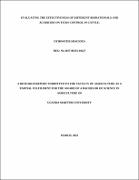
Evaluating the Effectiveness of Different Biorationals and Acaricide on Ticks Control in Cattle
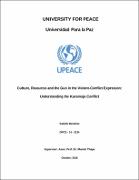
Culture, Resources and the Gun in the Violent-Conflict Expression:
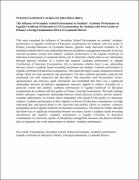
The Influence of Secondary School Environment on Students’ Academic Performance in Uganda Certificate of Education (UCE) Examinations for Students with First Grades in Primary Leaving Examinations (PLE) in Lyantonde District
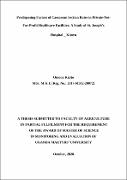
Predisposing Factors of Caesarean Section Rates in Private-NotFor-Profit Healthcare Facilities: A Study of St. Joseph’s Hospital _ Kitovu
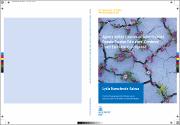
Agency within Crevices of Subordination: Female Teacher Educators’ Gendered Lived Experiences in Uganda

Financial resourcing mechanisms and the management of private universities in Uganda: a case study of Uganda Martyrs’ University- Nkozi.
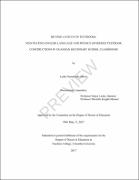
Beyond a focus on textbooks: Negotiating English language and physics gendered textbook constructions in Ugandan secondary school classrooms
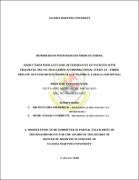
Short term poor outcome determinants of patients with traumatic pelvic fractures: a crossectional study at three private not for profit hospitals of Nsambya, Lubaga and Mengo.

Mathematical Models for Influenza a Virus and Pneumococcus: Within-Host and Between-Host Infection
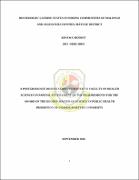
Households’ Latrine Status in Fishing Communities of Malongo and Jagusi Sub Counties, Mayuge District
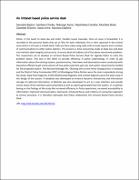
An intranet based police service desk
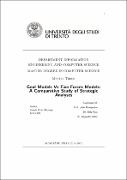
Goal Models Vs Five Forces Models: A Comparative Study of Strategic Analyses
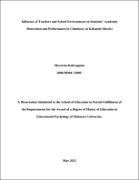
Influence of Teachers and School Environment on Students’ Academic Motivation and Performance in Chemistry in Kabarole District
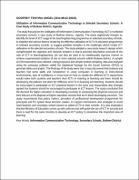
Utilization of Information Communication Technology in Selected Secondary Schools: A Case Study of Buikwe District, Uganda.
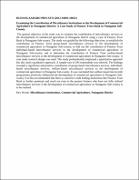
Examining the Contribution of Microfinance Institutions to the Development of Commercial Agriculture in Ntungamo District: A Case Study of Finance Trust Bank in Ntungamo Sub-County.
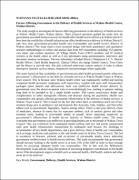
Factors Affecting Government in the Delivery of Health Services at Wakiso Health Centre, Wakiso District.
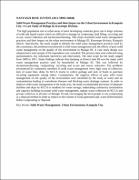
Solid Waste Management Practices and their Impact on the Urban Environment in Kampala City: A Case Study of Mulago iii, Kawempe Division.
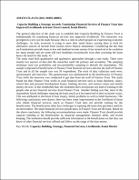
Capacity Building a Strategy towards Translating Financial Services of Finance Trust into Improved Livelihoods in Kumi Town Council, Kumi District.
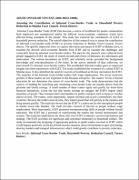
Assessing the Contribution of Informal Cross-Border Trade to Household Poverty Reduction in Malaba Town Council, Tororo District.
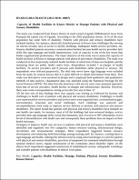
Capacity of Health Facilities in Kisoro District to Manage Patients with Physical and Sensory Disabilities.

- UMU Dissertations
UMU Theses, Dissertations and Research Reports
Welcome to Uganda Martyrs University Dissertations Repository (UMU DR). UMU RD is a collection of dissertations research project reports………………………………..
Communities in DSpace
Select a community to browse its collections.
The Independent magazine Uganda offers the latest Ugandan News, Cutting edge opinions & Analysis of Home and International Political, Business News.
Recently Added
Exploring the realization of the women’s constitutional rights in Soroti municipality in light of the Uganda human rights commission services
The role of income-generating activities in the economic empowerment of women in moruita sub-county, nakapiripirit district , factors influencing the persistence of unemployment among the youths of kampala central division , threats to indigenous knowledge in improving agricultural productivity in crop production .
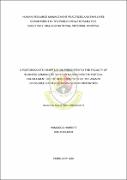
Human resource management practices and employee commitment in the public health facilities
- [email protected]
- (+256) 782 860 259
- Academic Calendar
- Staff Login
- AIMS for Staff
- AIMS for Students
- Statutory Instruments
- Vision Mission and Core Values
- University Policies
- Strategic Plan
- Administrative Offices
- Visiting Scholars
- Governance Structure
- University Chancellor
- University Council
- University Senate
- Council Committees
- Staff Directory
- Apply Online
- Admission Lists
- Graduate Students
- Fees Structure
- Student’s Guild
- International students
- Student’s Manual
- Kabale University School of Medicine (KABSOM)
- Faculty of Agriculture and Environmental Sciences
- Faculty of Engineering, Technology, Applied Design and Fine Art
- Faculty of Computing, Library and Information Science
- Faculty of Science
- Faculty of Economics and Management Sciences
- Faculty of Social Sciences
- Faculty of Education
- Faculty of Law
- Institute of Language Studies
- Institute of Tourism and Hospitality
- Doctoral Degrees (PhDs)
- Postgraduate
- Undergraduate
- Short courses

- Directorate of Research and Grants
- Collaborations and Partnerships
- Publications
- Students Research
- Workshops, Seminars and Conferences
- African Journal of Governance and Public Leadership (AJoGPL)
- Kabale University Interdisciplinary Research Journal (KURJ)
- Kabale University Digital Repository
- ResearchGate
- Google Scholar
- Research Ethics Committee
- University Library
- Quality Assurance
- Computing Services
- Financial Services
- Communication and Branding
- Internal Audit
- Health Services
- Vice Chancellor
- University Secretary
- Academic Registrar
- Human Resource Management
- Dean of Students
- Procurement and Disposal Unit
- Community Outreach
Guidelines for Reviewers of Research Proposals Submitted for Funding
- Download 53
- File Size 116.49 KB
- File Count 1
- Create Date September 16, 2022
- Last Updated September 16, 2022
- Secondary Menu
- Top Navigation
Search Kabale University
- [email protected]
- Mon – Fri 8:00 – 17:00

Bring your life
Official hours, +(123) 456 7890, meet our expert psychologists.
Nunc id cursus metus aliquam. Libero id faucibus nisl tincidunt egt. Aliquam id diam maecenas ultricies mi eget mauris olutpat ac tinci dent
Content Search
Elas research & learning partner request for proposals.
Overview: BRAC International seeks competitive technical proposals for the ELA in Schools (ELAS) Research & Learning partner opportunity. The partner will oversee endline data collection for an on-going project. Although data collection will likely take place from February through April 2025, the engagement will commence several months prior to ensure proper research permissions are obtained.
Contract Duration: July 2024 to June 2025
BRAC International is a leading international nonprofit with a mission to empower people and communities in situations of poverty, illiteracy, disease, and social injustice. BRAC designs proven, scalable solutions that equip people with the support, skills, and confidence they need to lift themselves out of poverty and achieve their potential. BRAC International’s flagship model for youth empowerment in Africa is Empowerment and Livelihoods for Adolescents (ELA), a program in operation for more than 15 years. ELA has served as a model for many other girls’ and youth empowerment programs due to the large body of evidence on its impact and effectiveness. As with many girls’ safe spaces programs, BRAC International’s ELA clubhouses are community-based and situated in rented and borrowed spaces, ideally within walking distance of participants’ homes. The ELA curriculum contains a holistic mix of social and economic empowerment teachings and activities led by near-peer mentors. These clubs target both in-school and out-of-school girls.
Despite remarkable evidence of success, the ELA model has shown itself to have shortcomings, not the least of which is that it requires a sustained and consistent flow of donor funding. In searching for a more sustainable pathway to scale, BRAC designed a project (called ELA in Schools or ELAS ) to adapt the ELA curriculum and delivery model to an after-school club setting, with content delivered on school premises rather than in community-based clubhouses, with teachers instead of near-peers serving as mentors.
Researchers started with formative research to learn how to adapt a community-based program to an afterschool setting. This was followed by a small-scale prototype in eight schools in Uganda's Mityana and Mubende districts, subbing in teachers for near-pears and schools for community “safe spaces.” The formative research greatly influenced the design of the ELAS prototype and curriculum. Resulting from this, BRAC decided to include adolescent boys and young men (ABYM) in the prototype stage because they learned there is a strong desire amongst parents and students for more content geared towards young men navigating adolescence, especially content related to positive masculinity.
BRAC Uganda is now leading the rollout of the project on a larger scale in an attempt to demonstrate its effectiveness via a randomized controlled trial (RCT). ELAS is being implemented in 100 schools in eastern, western, and central Uganda. BRAC Uganda staff train teacher mentors who create clubs for ABYM and AGYW. Club activities will be on-going throughout 2024.
To evaluate the project, we partnered with external researchers (see team composition section). Baseline data collection was completed between June and December 2023. Due to changes in BRAC International’s organizational structure, we are now seeking a new firm to conduct the endline data collection activity which will involve tracking the original 7,500 students who participated in the baseline data collection activity.
Team composition
The research partner will report to BRAC International but will collaborate with the principal investigators leading the study:
- Manisha Shah, PhD, Chancellor’s Professor of Public Policy, University of California, Berkeley
- Jennifer Seager, PhD, Associate Professor, Department of Global Health, Milken Institute School of Public Health, George Washington University
- Esau Tugume, Research Associate, BRAC Uganda
In addition to the team outlined above, there is also support in the form of an RA based at the PI’s university as well as a second RA based in Uganda. The research team also receives coordination support from BRAC International’s Learning & Effectiveness team.
Core responsibilities
- Apply for an Institutional Review Board (IRB) amendment and Uganda National Council for Science and Technology (UNCST) amendment for the ongoing study.
- Actively communicate and coordinate with the lead researchers, BRAC International, and the BRAC Uganda implementation team.
- Program and test survey tools into SurveyCTO for administration in the field via tablet
- Training enumerators to conduct high quality data collection
- Pilot survey tools in the field prior to the start of data collection
- Oversee data collection staff to ensure research is conducted to the highest rigor and safeguarding standards,
- Conduct high frequency checks of the data to confirm consistency and accuracy of the data, and overseeing callbacks and revisits to correct errors as needed
- Tracking baseline survey respondents for interviews who may have left school or moved from their previous location.
Eligibility
The research and learning partner must have a permanent, physical presence in Uganda, the capacity to conduct data collection throughout 23 districts in Uganda, and experience collaborating with academic researchers. In addition, candidates must be available for virtual interviews in April and May 2024 and must have existing capacity to meet the deadlines specified above. Institutions that cannot meet these eligibility requirements are discouraged from submitting an application.
https://docs.google.com/document/d/1a14-fLJITzBOiU9BA2og8QDxtUXrJazFwZtQN9MFSa8/edit
How to apply
Application instructions
Applications must be submitted as a single PDF accompanied by an Excel budget proposal to [email protected] by April 24, 2024, 11:59 PM East Africa Time (EAT).
For questions, please contact Jenna Grzeslo (Head, Research & Learning, BRAC International): [email protected].
The .pdf must contain:
- Name and brief description of the organization that will manage the contract
- Key team members (name, designation)
- Please articulate why you are the appropriate research and learning partner for this evaluation. In doing so, you may discuss: The expertise and value-add of the research team, including similar engagements that you have completed. Your experience conducting research in the regions where the implementation is taking place.
- Are you fully available to complete the project according to the proposed timeline? What challenges, if any, do you anticipate affecting the project timeline and deliverables? What other risks, if any, are anticipated during the course of the research, and what steps will be taken to mitigate them?
- Total budget requested
- Please include a description justifying the major cost drivers of the evaluation. Details clearly laid out in the budget template do not need to be restated here, but you may use this space to elaborate on any expenses that are unclear in the template. Competitive bids will demonstrate high value for money.
- CVs of key team members
- A declaration that your organization agrees to BRAC International’s vetting and due diligence procedures.
- A declaration that your organization (including its agents, employees, sub-contractors, sub-consultants and suppliers) does not contravene with all applicable AML/CFT laws and does not engage in or conspire to engage in any transaction that evades or avoids, or has the purpose of evading or avoiding, or attempts to violate, any of the prohibitions set forth in any AML/CFT laws.
- Please include contact information for at least three references that you can speak to your ability to carry out similar scopes of work. If you plan to outsource any major component of the project (e.g., data collection, analysis, etc.) to another firm, please also provide at least three professional references for each partner. You may also include letters of reference, but these references should be able to be reached by phone or email.
- Please provide appropriate statements from bankers of the firm’s financial resources.
- Please provide firm’s balance sheets or extracts from them, where publication of a balance sheet is required under company law in the country in which the supplier is established, where applicable.
- Legal capacity shall be confirmed by a power of attorney. This document shall also state that there is no judicial prohibition in place preventing the person, firm or employees from signing a contract with any potential customer or client.
- Copy of trade license or equivalent
- Copy of VAT Registration certificate or equivalent
- Up-to-date copy of tax payment receipt or equivalent
- A copy of your organization’s safeguarding policy. If no such policy exists, please include a description of the actions you take to ensure safeguarding.
Related Content
Uganda + 5 more
UNHCR and partners urge renewed support for South Sudanese refugees with new funding appeal
South sudan regional refugee response plan, january - december 2024 (at a glance), south sudan regional refugee response plan (january - december 2024).
Uganda + 12 more
Regional Bureau for East and Horn of Africa, and the Great Lakes - Refugees, returnees and internally displaced persons in the IGAD region (as of 29 Feb 2024)

IMAGES
VIDEO
COMMENTS
A RESEARCH PROPOSAL SUBMITTED TO THE SCHOOL OF BUSINESS AND MANAGEMENT IN PARTIAL FULFILMENT OF THE REQUIREMENTS FOR THE AWARD OF BACHELORS DEGREE IN BUSINESS ADMINISTRATION AT CAVENDISH UNIVERSITY UGANDA ... In Uganda poverty has been increasing at the rate of 2.5% every year since 2004 due to higher increase in population, Corruption of some ...
For comments or further information regarding formats of proposals, reports and manuscripts, please contact: The Director , Directorate of Research and Graduate Training, Makerere University Tel: +256 414 530 983 Fax: +256 414 533 809 e-mail: [email protected] url: www.makerere.rgt.mak.ac.ug.
THE ROLE OF MICROFINANCE SERVICES AND GROWTH OF SMALL ENTERPRISES CASE STUDY: FINCA UGANDA LIMITED BY KASANGO PHILLIP BAF/2017/418203 A RESEARCH PROPOSAL SUBMITTED TO THE SCHOOL OF BUSINESS AND MANAGEMENT IN PARTIAL FULFILMENT OF THE REQUIREMENTS FOR THE AWARD OF BACHELOR'S DEGREE IN ACCOUNTING AND FINANCE AT NKUMBA UNIVERSITY AUGUST 2019 ...
This is a written presentation of an intended research specifying the problem, the purpose, scope/objectives, methodology, references and the financial plan/budget. A synopsis is an outline of the research proposal of 3-5 pages length (including references) which is currently required for provisional admission to Ph.D and other doctoral degree studies at Makerere University.
A RESEARCH DISSERTATION SUBMITTED TO THE SCHOOL OF ALLIED ... In Uganda, Forestry makes a crucial contribution to the ecology and energy needs of Uganda. Uganda's forest resources are an essential foundation for the country's current and future livelihood and growth. The overwhelming majority of Uganda's household energy requirement
Research Proposal - At Uganda Christian University, a research proposal sets out a topic or problem of research interest, reviews the literature relating to that topic, and presents a methodology for addressing the problem. All research proposals utilize the same structure, but postgraduate is more comprehensive and rigorous.
RESEARCH PROPOSAL DRAFF ON THE ASSESSMENT OF THE ROLE OF COMMUNITY DEVELOPMENT PROGRAMMES ON YOUTH EMPOWERMENT IN THE NORTHERN UGANDA ... The Uganda National Youth Policy also considered education as one of the tools for the empowerment of the marginalized people including youths in the post IDP camps. The following are outlined in the policy ...
A research proposal is basically made up of three sections: the preliminaries, text and the appendices. Figure 1 illustrates the major features of a research proposal: Proposal. Preliminaries. Text. Appendices. Title Declaration Approval Table of Contents List of Tables.
The higher education landscape is rapidly changing, the technological rise of the 21st-century and widespread integration of those technologies into our society, combined with access to the internet has integrally changed graduate research proposal and thesis examination/defence approaches. The rapidly changing landscapes call for a review of the research proposal/thesis examination methods in ...
Application requirements and submission. The research proposal shall be written in Times New Roman, Font 12 and single spaced. Proposals should be between seven and ten pages long. The proposal shall be submitted by the PI in both print and electronic formats to [email protected] and copy to [email protected].
A RESEARCH PROPOSAL SUBMITTED TO THE SCHOOL OF BUSINESS AND MANAGEMENT IN PARTIAL FULFILMENT OF THE REQUIREMENTS FOR THE AWARD OF BACHELORS DEGREE IN BUSINESS ADMINISTRATION AT CAVENDISH UNIVERSITY UGANDA. JULY 2014. DECLARATION. I declare that this research proposal is my original work and has not been presented for. examination in any other ...
2016. 2017. P a g e | 51. PhD Research Proposal_ Patrick BUSHILYA_2018. 8. Fill in the following table indicating quality school performance at grades 9 and 12 [Best 6. including English and ...
For 1 week. 5:00 am - 8:30 pm. Weekends (Day) Friday & Saturday. For 1 and a half Months. 9:00 am - 4:00 pm. Online. At convenience. Course Must be complicated within 3 Months from the time of Registration.
The research grant is a one-time award, with financial support of up to twenty-five million Uganda Shillings (25,000,000/=) for Arts, Humanities and Social Sciences and up to forty million Uganda Shillings (40,000,000/=) for Science-based proposals. ... The research proposal shall be written in Microsoft Word, Times New Roman, Font 12, single ...
1.1. Preliminary Note. These are guidelines for writing proposals, research reports, dissertations and theses at Kampala International University in Tanzania (KIUT). The guidelines are meant to act as the point of reference for the candidates of Postgraduate Diploma, Masters Degrees and Doctor of Philosophy (PhD).
Factors associated with the occurrence of human bacterial pathogens in Lake Victoria surface water and Nile tilapia (Oreochromis Niloticus) at Kasenyi trading and landing site in Uganda. Lujjimbirwa, Fortunate (Nkumba University, 2023-10-04) Background: Lake Victoria is the world's second largest and the largest by surface area in Africa and ...
Write a research proposal that outlines your research question, objectives, literature review, method, and expected results. ... YOUPASS Uganda is a dedicated academic support service that focuses on providing comprehensive assistance to students in Africa, with a particular emphasis on Uganda. Our services encompass various aspects of academic ...
farmer groups and agricultural development in sanga sub county, kiruhura district by nkuuhe douglas 12/bsu/hda/012u a research proposal submitted to the department of graduate studies as partial fulfillment of the requirements leading to the ward of a masters degree of bishop stuart university, mbarara, uganda.
Research proposal examples. Writing a research proposal can be quite challenging, but a good starting point could be to look at some examples. We've included a few for you below. Example research proposal #1: "A Conceptual Framework for Scheduling Constraint Management" Example research proposal #2: "Medical Students as Mediators of ...
Namatende-Sakwa, Lydia(ProQuest LLC, 2017-05-17) This study exceeded the dominant focus on textbooks to include teacher and student classroom engagements with them. It was guided by three research questions: i) In what ways might English and physics textbooks in Ugandan ... Short term poor outcome determinants of patients with traumatic pelvic ...
Human resource planning and organizational performance . Nakigozi, Carol Assumpta (Uganda Martyrs University, 2016-04) The study is designed to cover the relationship between Human Resources Planning and the performance of an organization basing ore on its employees. The study that was carried out at Stanbic Bank Uganda Kampala branch ...
Plot 364 Block 3 Kikungiri Hill, Kabale Municipality, P.O Box 317, Kabale, Uganda. +256 782860259; [email protected]
[email protected]; Plot 44-52, Jinja Road, P.O Box 20131 Kampala, Uganda. +256-312 721 700, +256-312 721 200
BRAC. Posted. 28 Mar 2024. Closing date. 24 Apr 2024. Overview: BRAC International seeks competitive technical proposals for the ELA in Schools (ELAS) Research & Learning partner opportunity. The ...